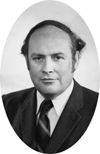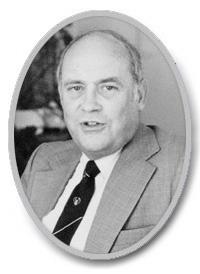David Tonkin facts for kids
Quick facts for kids
David Tonkin
|
|
|---|---|
 |
|
| 38th Premier of South Australia Elections: 1977, 1979, 1982 |
|
| In office 18 September 1979 – 10 November 1982 |
|
| Monarch | Elizabeth II |
| Governor | Sir Keith Seaman Sir Donald Dunstan |
| Deputy | Roger Goldsworthy |
| Preceded by | Des Corcoran |
| Succeeded by | John Bannon |
| Treasurer of South Australia | |
| In office 18 September 1979 – 10 November 1982 |
|
| Premier | Himself |
| Preceded by | Des Corcoran |
| Succeeded by | John Bannon |
| Leader of the Opposition of South Australia |
|
| In office 24 July 1975 – 18 September 1979 |
|
| Deputy | Roger Goldsworthy |
| Preceded by | Bruce Eastick |
| Succeeded by | John Bannon |
| Leader of the South Australian Liberal Party |
|
| In office 24 July 1975 – 10 November 1982 |
|
| Preceded by | Bruce Eastick |
| Succeeded by | John Olsen |
| Member for Bragg | |
| In office 30 May 1970 – 10 April 1983 |
|
| Preceded by | Seat established |
| Succeeded by | Graham Ingerson |
| Personal details | |
| Born |
David Oliver Tonkin
20 July 1929 Unley, South Australia, Australia |
| Died | 2 October 2000 (aged 71) Mengler Hill, South Australia |
| Nationality | Australian |
| Political party | Liberal Party of Australia (SA) |
| Parents | Oliver Athelstone Prisk Tonkin Bertha Ida Louisa Kennett |
David Oliver Tonkin AO (born 20 July 1929 – died 2 October 2000) was an Australian politician. He served as the 38th Premier of South Australia from 1979 to 1982.
Tonkin was first elected to the House of Assembly for the area of Bragg in 1970. He became the leader of the South Australian Liberal Party in 1975. After losing the 1977 election, his party won the 1979 election.
As Premier, David Tonkin's government focused on careful spending and social improvements. His government was defeated in the 1982 election.
Contents
Early Life and Community Work
David Tonkin was born in Unley, South Australia, on 20 July 1929. His father passed away when David was five. His mother, Bertha, then raised him and his siblings.
Tonkin went to local public schools. He later earned a scholarship to St Peter's College, Adelaide. He studied Medicine at the University of Adelaide. To pay for his studies, he worked as a taxi driver.
After becoming a doctor, he trained as an eye surgeon in London. He then opened a practice in Adelaide. He became known as a leading eye surgeon in the city. Tonkin had Cornish family roots.
David Tonkin cared deeply about helping others. He volunteered as an eye surgeon at public hospitals in Adelaide. He also started Australia's first public screening program for glaucoma through the Lions Club. In 1962, he became a director for the Australian Foundation for Prevention of Blindness SA Inc.
Political Career
David Tonkin supported the Liberal and Country League (LCL) from a young age. He helped the party during elections. His strong community involvement made him a good candidate for the LCL. In 1968, he ran against Premier Don Dunstan but did not win. In 1970, he became the first member for the new area of Bragg.
Tonkin quickly became known as a forward-thinking member of the LCL. He supported the Liberal Movement group, which wanted to modernize the party. Even when this group split from the LCL, Tonkin stayed with the main party.
In 1974, Tonkin became well-known across South Australia. He successfully introduced a new law to stop unfair treatment based on gender. This was the first law of its kind in Australia. A year later, he became the leader of the South Australian Liberal Party. He replaced Bruce Eastick.
As leader, Tonkin worked to bring different parts of the Liberal Party back together. The Liberals lost the 1977 election, but they won the 1979 election against the Labor government. This was a big win for the Liberals. They gained 25 out of 47 seats, just enough to form a government.
However, in 1980, the Liberals lost a by-election in the area of Norwood. This meant Tonkin's government had a very small majority, with only one more seat than needed.
Premier of South Australia
As Premier, David Tonkin also served as the state's Treasurer. He believed in managing money carefully, which is called fiscal conservatism. This meant he made cuts to government spending and jobs. This made some unions unhappy.
At the same time, he introduced many socially progressive changes. For example, he passed a land rights bill. This law returned 10 percent of South Australia's land to the Pitjantjatjara people.
Other important actions by his government included:
- Developing the copper and uranium mine at Olympic Dam.
- Extending anti-discrimination laws to include people with physical disabilities.
- Setting up the Ethnic Affairs Commission to help different cultural groups.
- Introducing random breath testing (RBT) to improve road safety.
Tonkin sought to be re-elected in the 1982 election. He had support from the media. However, the economy was struggling due to a recession. His government lost the election to Labor, led by John Bannon.
Soon after, Tonkin resigned from parliament due to a heart problem. Graham Ingerson easily won his seat for the Liberals in the next election. Until 2022, Tonkin was the only non-Labor Premier in South Australia to serve a full term under the Liberal banner.
After Politics
After leaving politics, David Tonkin returned to being an eye surgeon. He also served on various boards and community groups. He was chairman of the State Opera from 1985 to 1986. He was also vice-president of the Sturt Football Club. In 1986, he took a job in London as Secretary-General of the Commonwealth Parliamentary Association.
Tonkin returned to Australia in 1992. In 1993, he was made an Officer of the Order of Australia. From 1994 to 1996, he was chairman of the South Australian Film Corporation. In 1996, he had a stroke, which affected his speech and led him to retire.
In 2000, Prime Minister John Howard gave Tonkin an award for his outstanding achievements in the Liberal Party. David Tonkin passed away in his sleep on 2 October 2000. He was at a music festival at Mengler Hill, Barossa Valley, South Australia. He was survived by his wife, Prue, six children, and ten grandchildren.
After his death, the Pitjantjatjara people honored Tonkin. They said that no other Liberal politician had done as much for Aboriginal people.
The Board Room in the Bragg Electorate Office is named after him. Also, a special dinner is held each year in his memory by the South Australian Young Liberal Movement.
Images for kids
 | Leon Lynch |
 | Milton P. Webster |
 | Ferdinand Smith |



